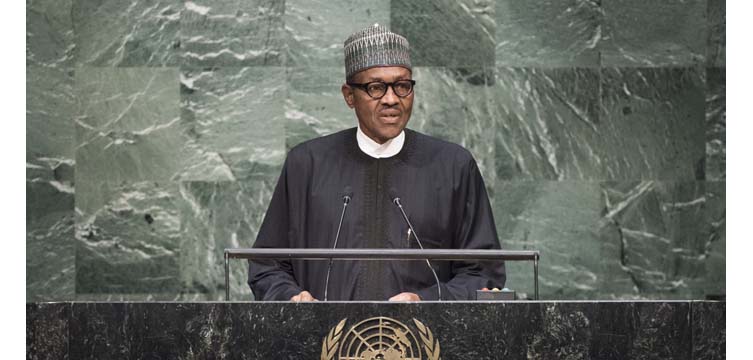EDITORIAL: To deprive poor Nigerians of basic healthcare is to deprive them of life
When the National Assembly on May 16, 2018 passed the 2018 Appropriation Act inclusive of the Basic Health Care Provision Fund (BHCPF) – which is to the tune of about 55.1 billion naira – even though it was 4 years after the National Health Act (NHAct) was signed into law by President Goodluck Jonathan, Nigerians advocating for the implementation of NHAct and Universal Health Coverage (UHC) heaved a sigh of relief.

Sadly, six months later and very few days to the end of the year, the initial enthusiasm and excitement that greeted that development has since given way for frustration and despair; the hope that poor Nigerians would, finally, have access to quality healthcare has since been dashed away solely, because the Nigerian government has failed to release the BHCPF budgeted for the year 2018, totaling about 55 billion naira.
Today, as the world marks the Universal Health Coverage (UHC) Day 2018 under the theme:“Unite for universal health coverage: now is the time for collective action,”we are calling on President Muhammadu Buhari to ‘put his ink where his mouthis’. Nigeria is endowed with so much resources, for which, there is no justification whatsoever for the country’s failure to provide quality healthcare to its poor citizens, resulting in more deaths of Nigerians, particularly women and children, on daily basis.
Mr President, you need to recognize the fact that investment in health is not just a social investment – it is also an economic one! Hence, investing more in health means less number of Nigerians falling sick and being rendered unproductive. It also means less number of children falling sick and developing brain disorders thus having higher chances of achieving better learning outcomes and eventually becoming productive adults capable of making meaningful contributions to the economic development of Nigeria.
It was as part of efforts to bridge the huge existing gap in public health funding in Africa that Nigeria, in 2001, hosted heads of states of African Union (AU) member states in a special summit aimed at specifically addressing public health challenges in Africa. In what is now known as the Abuja Declaration, Nigeria and other member states pledged to commit at least 15% of their annual budgets to the health sector.
Almost two decades down the line, Nigeria ‘The Giant of Africa’ has embarrassingly failed to uphold this pledge made at its own backyard; Nigeria is not only lagging behind countries like South Africa in healthcare financing; it is unimaginable and unacceptable that the country is also lagging behind smaller African nations such as Swaziland, Malawi, and Togo – in terms of funding for public health. For example, in 2018, Nigeria – Africa’s most populous country –committed a mere 3.9% of its annual budget to the health sector.
Section 11 of the NHAct states that the BHCPF will be predominantly financed through annual grants from the Federal Government of not less than 1% of the Consolidated Revenue Fund (total federal revenue before it is shared to all tiers ofgovernment) and additional sources of funding from donor and partner agencies.
Despite being a statutory act passed by the National Assembly, in accordance with the constitution, the lofty provisions of the NHAct has remained largely on paperwithout implementation. However, following increasing demands for the implementation of the Act by Nigerian civic organizations notably, the Health Sector Reform Coalition (HSRC), the 1% CRF was included in the 2018 budget for the first time since the Act waspassed in 2014, which brought an albeit short-lived ray of hope to many Nigerians.
As 2018 is about to be condemned to the history books, the Federal Government of Nigeria has not released the BHCPF to the tune of about 55 billion naira.Undoubtedly, the non-release of the funds which would have gone a long way in ensuringquality healthcare services for poor Nigerian citizens now means over 111 pregnant Nigerian women and over 2000 children continue to die everyday of totally avoidable pregnancy-related complications and childhoodkiller diseases, respectively.
Undoubtedly, the non-release of the funds which is responsible for the unfortunate and avoidable deaths of Nigerian women and children is akin to murder sanction; indeed, to deprive people of access to quality basic healthcare services is to deprive them of life!











